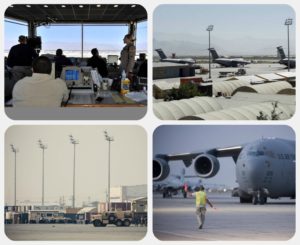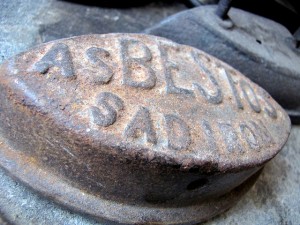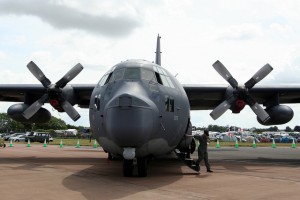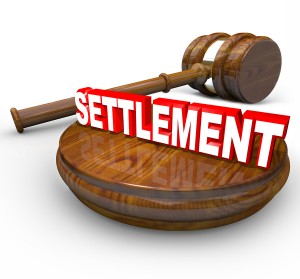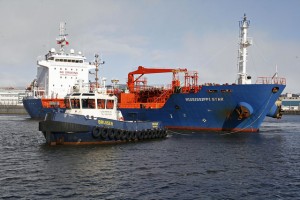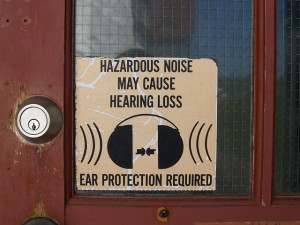The Defense Base Act is the best kept secret in the contracting world. But, if a claimant is injured at work, they might hear about the Defense Base Act through their employer, co-workers, or Internet searches. This post discusses some basics about the DBA, and it ends with an invitation to contact Strongpoint Law Firm if you would like additional information. What is the Defense Base Act? The Defense Base Act is workers’ compensation. Injured workers may file claims for weekly compensation and medical benefits. Congress enacted the DBA during World War 2, using the Longshore and Harbor Workers’ Compensation Act as the framework. Longshore Act law applies unless the DBA says otherwise. But, there is also a unique doctrine that applies to DBA claims called the zone of special danger doctrine. Basically, the zone of special danger expands an insurance carrier’s liability to cover work injuries that happen overseas.Read more
Ninth Circuit Issues Longshore Decision Protecting Injured and Disabled Retirees
The Ninth Circuit issued an important opinion abut the availability of Longshore disability benefits for a retiree. This published opinion, issued in Christie v. Georgia-Pacific Co., follows a Fourth Circuit opinion on January 3, 2018, which also addressed retiree benefits. From coast to coast, the federal appellate courts have issued decisions which protect retirees. Brief Summary of Christie: The Summary of the Christie decision succinctly explains the Ninth Circuit’s reasoning: The panel interpreted the language of 33 U.S.C. § 902(10) defining “disability,” and held that claimant’s decision to retire early did not prevent him from receiving permanent total disability benefits. The panel further held that substantial evidence in the record supported the administrative law judge’s findings that claimant was disabled with the meaning of the Act: he achieved maximum medical improvement, he could no longer return to his previous employment, and the employer failed to establish that suitable alternative employment existed. The panel noted thatRead more
Proving the Prima Facie Case Per the 5th Cir.’s New Decision
A new decision from the Fifth Circuit is important for Longshore and Defense Base Act cases because it explains the Section 20(a) presumption that runs in favor of claimants. Below, I first address the opinion, Ramsay Scarlett v. Director, OWCP. After that, I give my take away from the case. Ramsay Scarlett v. Dir., OWCP: The case involved an injured employee of Ramsay Scarlett & Company. The employee, Ferdinand Fabre, had worked for Ramsay Scarlet for 30 years (from 1969 to 1991). After Ramsay Scarlett, Mr. Fabre worked for Westway at the Port of Baton Rouge. Both Ramsay Scarlett and Westway were covered by the Longshore and Harbor Workers’ Compensation Act. In 2011, Mr. Fabre received an asbestosis diagnosis. The parties did not dispute the fact that Mr. Fabre was exposed to asbestos while working with Ramsay Scarlett. Accordingly, Mr. Fabre filed a claim for Longshore benefits, which he won.Read more
Use Insurance Premiums as an AWW Calculation Factor?
The value of an injured worker’s weekly compensation rate rises and falls based on the amount of the injured worker’s average weekly wage (“AWW”) at the time of injury. Consequently, litigants often argue about the worker’s AWW—especially in Defense Base Act claims. Most of the time, the argument is—in my opinion—used as a way to artificially deflate the AWW and compensation rate. Today’s post addresses a specific AWW argument that popped up in one of my cases. The issue is whether an employer and carrier may “blend” together pre-employment stateside and overseas wages to calculate the AWW of an employee who worked overseas for more than 52 weeks. I don’t think so. And perhaps a relevant factor in this inquiry should be the premiums paid by the employer to the carrier–which is a factor that some State courts look at in State workers’ compensation claims. Definition of Wages: There isRead more
Defense Base Act Death Claims After a Plane Crash
Last week, a C-130 aircraft crashed in Afghanistan, killing 6 airmen and 5 civilian contractors. Multiple media outlets reported on the crash. For instance, the Los Angeles Times wrote that the crash occurred Friday at Jalalabad Airfield in Afghanistan. Although a spokesman for the Taliban claimed that militants shot the plane down, those claims remain uncorroborated. This post addresses how a Defense Base Act proceeds when an aircraft accident occurs. The Defense Base Act: The Defense Base Act is a federal workers’ compensation system. It provides protection to contractors and subcontractors working overseas on a United States military base or working under a United States government contract. If a contractor is injured or killed, then the contractor or his loved ones may be entitled to benefits. As for the recent plane crash, any eligible surviving beneficiaries would be entitled to death benefits. When something like this happens, the contractors’ employers file a Form LS-202. This form isRead more
Requirements for a Longshore or DBA Settlement
Want to know what goes into a Longshore or Defense Base Act settlement? Look no further than the Code of Federal Regulations. A Longshore or Defense Base Act settlement is technically a settlement application, not a settlement agreement. The parties negotiate an agreement between themselves, but a third party must approve the written application describing that agreement before the agreement takes effect. As such, the parties to a claim submit their settlement application to either an Office of Workers Compensation Programs’ district director or an administrative law judge. The adjudicator will determine whether the settlement is adequate. Typically, this determination is made within thirty days. See 20 C.F.R. § 702.243(b). What is “adequate”? It depends on the facts and circumstances of the individual case, which the adjudicator must consider. Specifically, the Code of Federal Regulations states: (f) When presented with a settlement, the adjudicator shall review the application and determine whether, considering all the circumstances, including, where appropriate,Read more
Louisiana 4th Circuit Vacates State Work Comp Dismissal
Louisiana does not have concurrent jurisdiction between the state workers’ compensation scheme and federal workers’ compensation schemes. Louisiana Revised Statute 23:1035.2 provides that “[n]o compensation shall be payable in respect to the disability or death of an employee covered by the Federal Employer’s Liability Act, the Longshoremen’s (sic) and Harbor Worker’s Compensation Act, or any of its extensions, or the Jones Act.” If one of those acts apply, then the Louisiana Workers’ Compensation Act does not. In a new case, Johnson v. ACE American Insurance Company, Louisiana’s Fourth Circuit explored–albeit briefly–the lack of concurrent jurisdiction in Louisiana. The plaintiff sustained a work-related injury while aboard a boat that was involved in a collision on the Grand Pass. The injured worker filed claims under both the Louisiana Workers’ Compensation Act and the Longshore and Harbor Workers’ Compensation Act. At a hearing on exceptions filed by the defendants, the workers’ compensation judge (“WCJ”) determined that theRead more
Hearing Loss Covered By Louisiana Workers Comp
A new decision from the Supreme Court of Louisiana clarified that hearing loss caused by occupational exposure to hazardous noise levels falls under the Louisiana Workers’ Compensation Act and not tort law. The instant case presents a res nova issue in this court of whether gradual noise induced hearing loss caused by occupational exposure to hazardous noise levels is a personal injury by accident or an occupational disease, or both, under the Louisiana Workers’ Compensation Act (hereinafter, “LWCA”), thereby entitling the defendant employer to immunity from suits in tort under the exclusivity provisions of the LWCA. Interpreting the Act and mindful of the clear legislative purpose behind the workers’ compensation scheme–a principle that has been well-experienced in our jurisprudence, we find occupational noise-induced hearing loss (hereinafter, “NIHL”) falls squarely within the parameters of the LWCA, either the pre-1990 definition of “accident” or the post-1975 definition of “occupational disease.” The courtRead more
Longshore Conferences and the Louisiana Comp Blog
First, there’s a new workers’ compensation blog in town. Louisiana Comp Blog (http://compblog.com/), which is published by LCI Workers’ Comp, looks great. I’m a fan of the design and the content, and I look forward to many insightful discussions in the future. I have already subscribed and I suggest you do the same. The following snippet explains Louisiana Comp Blog’s mission: Louisiana Comp Blog’s fresh and original content ranges from features and profiles of industry leaders to commentary/opinion articles and event coverage. We also publish a daily Comp News Bulletin every morning, which allows our readers to get a head start on their day with the top three to five stories affecting Louisiana’s workers’ comp industry on both the local and national scale. All of this makes us your one-stop source for the best workers’ comp reporting from across Louisiana. Second, we are one month away from the annual DOLRead more
